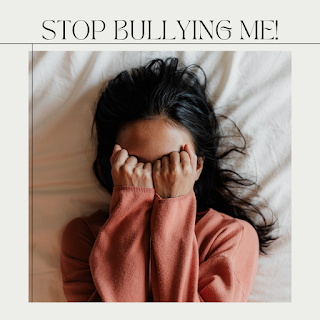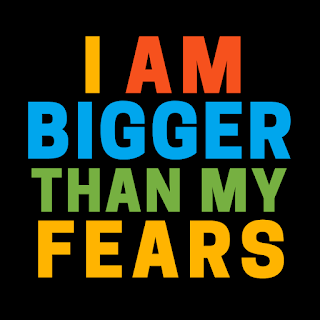To Have Better Health, Work on Your Mental Health!
Mental health is defined as "a state of emotional and psychological wellbeing in which an individual is able to use his or her cognitive and emotional capabilities, function in society, and meet the ordinary demands of everyday life." (https://www.wordnik.com/words/mental%20health)
Link Between Mental Health & Physical Health
There is a definite link between mental health and physical health. When you've a mental health issue, it'll inevitably affect your physical health over time and vice versa.
Now let's take a look at some of the ways in which our mental health affects our physical wellbeing.
1. Increased Risk of Chronic Diseases
Mental health conditions, such as depression, have been linked to an increased risk of chronic physical health problems such as heart disease, cancer and diabetes. (https://www.health.com/condition/depression/conditions-linked-to-depression)
According to Medical Xpressand Science Daily people with depression are apparently more likely to have multiple chronic
health problems compared to those without depression.
And according to ontario.cmha.ca, people who suffer from a
serious mental health condition have a higher risk of experiencing a wide range
of chronic physical conditions.
2. Weakened Immune
System
Poor mental health affects a person's immune system. And in turn, it affects their physical health. This is because once their immune system is compromised, its ability to protect them from all potential health threats would be reduced.
I've suffered from depression/anxiety disorder/PTSD for a long time. Prior to that, I could take on an undue amount of stress and sleep for about three hours every night for many years without any major physical health issues. But after suffering from these mental health issues over a prolonged period, I began to fall sick easily. And I believe it was because of my compromised immune system.
3. Reduced Quality of Sleep
Poor mental health can affect a person's sleep quality, which can have a negative impact on their physical health. Sleep plays a critical role in many functions of the body, including metabolism and the immune system.
Metabolism plays a critical role in keeping the body functioning while the immune system serves to protect the body from foreign invaders (bacteria, viruses, parasites and fungi) that causes illness, infection and disease.(https://my.clevelandclinic.org/health/articles/21196-immune-system)
Chronic sleep deprivation has been linked to an increased risk of diabetes, heart disease and other health problems. Therefore, it's of fundamental importance that we get enough sleep.
Mental health conditions can affect one's perception and management of pain. According to healthline.com, anxiety and depression can lower one's tolerance towards pain. And so people with depression or anxiety may actually experience greater pain sensitivity and may have a more difficult time managing their pain compared to those without any mental health conditions.
When I was in my early teens, I'd a very bad fall. I rode a bike too fast and fell into a big drain. The pain back then was bearable to me. However over the years, I've noticed that I've a lower threshold for physical pain. I'm not sure if it's due to my mental health issues but I don't discount the possibility.
How Can We Improve Our Mental Health?
1. Practise Mindfulness
Mindfulness is the practice of being present and fully engaged in the moment. According to Psychology Today, mindfulness is a state of active, open attention to the present. And it is when we simply observe our thoughts and feelings without judging them as good or bad.
According to Mayo Clinic Health System, the practice of mindfulness can help us to reduce anxiety, depression and stress. And according to learning-mind.com, mindfulness practice can help us to regulate our emotions which can greatly affect our mental health. In addition, it can also help us to enhance our coping skills so that we're better able to manage life's stressors and challenges.
Sleep is closely connected to mental health. As such, when we lack sleep or have poor quality of sleep over time, it can lead to mental health issues such as depression, anxiety and bipolar disorder. (https://www.sleepfoundation.org/mental-health) Therefore, it's important that we prioritise sleep so that our mental health won't take a hit.
What can we do to sleep better or to get better quality of sleep? According to Mayo Clinic, there are several things we can do, such as sticking to a sleep schedule, creating a restful environment and limiting daytime naps.
3. Engage in Physical ActivitiesPhysical activities such as regular exercise can boost a person's mood, reduce their stress and anxiety, and improve their overall wellbeing. Even a simple walk or a light yoga session can make a big difference.
Exercise can help to reduce stress hormones such as cortisol. It can also increase endorphins, which is your body's 'feel good' chemicals, thereby giving your mood a natural boost. Furthermore, it can also distract you from negative thoughts and emotions. (https://www.verywellmind.com/mental-health-benefits-of-exercise-2584094)
For me, I've noticed that I feel better emotionally after going for a walk. I don't go for walks regularly; but whenever I do, the improvement in my mood is almost instantaneous and obvious.
According to Berkeley Wellbeing, "emotional support is an intentional verbal and nonverbal way to show care and affection for one another". It's being there for someone who needs your support.
Emotional support helps us to cope with our challenges, disappointments, stress or pain, and makes us feel happier and more resourceful to deal with the troubles of life. (Atoum & Al-Shobul, 2018). (https://www.berkeleywellbeing.com/emotional-support.html) When we know that there are people who care enough about us to provide us with the support we need, it makes us feel comforted and secure.
Talking to someone who listens to us and supports us can help us feel less alone and more connected, which in turn can help reduce our stress and anxiety. Moreover, talking about our feelings and concerns can help us process and work through them in a healthy way.
Self-care is anything you do to take care of yourself so you can stay physically, mentally, and emotionally well. My definition of self-care is "putting care for oneself first before others so that one is mentally, emotionally and physically able and ready to extend care to others". As such, self-care is not synonymous with self-indulgence or being selfish.
According to Southern New Hampshire University, practising self-care has been clinically proven to reduce or eliminate anxiety and depression, reduce stress, minimise frustration and anger, increase happiness, etc.
Therefore, please don't ever shortchange yourself by always putting others' needs before your own.
6. Practise Solitude
For a long time I've always believed in the importance of solitude, which is defined as "the state of being alone without being lonely". It's a "positive and constructive state of engagement with oneself".
Solitude isn't the same as loneliness because we've to be intentional about it. Intentional solitude not only helps us to reduce stress, it also helps us to renew our energy.
When we spend time in solitude, it's easier for us to hear what our souls want. And when there's an alignment between our hearts' desires and the realities of our lives, we'll be in a state of bliss.
I've always enjoyed solitude because I'm someone who needs to have
a lot of 'me time'. It's a time for me to recharge after depleting my physical/emotional/mental energy. After a time of solitude, I feel lighter and less burdened by life's challenges.
Conclusion
To conclude, I just want to say that taking care of your mental health is just as important as taking care of your physical health, because both are keys to a healthy and fulfilling life.
Cheers,
Annie Chan
(P/s: My next blog post will be published on 28 May 2023.)
NOTES
1. Check out my website:
https://www.elevatewellnesscircle.com/
2. Check out my affiliate programme:
https://www.elevatewellnesscircle.com/affiliate
3. Try for FREE: power recharge therapy, power foot detox therapy & acugraph energy analysis! (https://energia.sg/free?ref=anniechan)














